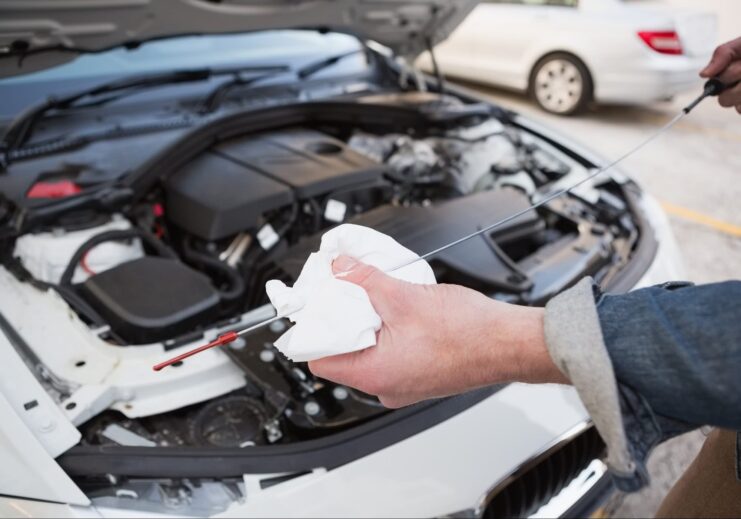Owning a car comes with a lot of responsibilities. It is an expensive investment that can affect you in many ways. As a car owner, it is your duty to maintain it and keep it running smoothly. Here are some tips that will help you become a responsible car owner.
Properly Dispose of Car Waste

Almost everything that relates to car waste is a health risk hazard to humans and the environment. Other parts are explosive; they cannot be disposed of in garbage cans, septic tanks, stormwater sewers, or drains. Notably, disposing of car waste improperly is illegal, and you can face civil and criminal penalties. You should find ways to properly dispose of car waste, where most of it is recycled or reused. If you are having trouble finding proper car waste information, you may contact the solid waste department or extension officer of your region.
For instance, improper motor oil disposal can cause fatal oil pollution. You should not dump motor oil into your backyard or in the garbage. Waste motor oil pollutes your soil and water, especially if you have a river nearby. Other car waste you should properly dispose of include car batteries, gasoline, and brake transmission fluid.
Keep Your Car Insured
Having auto insurance is not just a legal requirement in most jurisdictions, but also a practical and responsible choice. It offers you peace of mind and safeguards your finances in case of unexpected incidents. With insurance, you can be assured that you won’t be solely responsible for covering the costs of medical expenses or repairs resulting from a collision.
When choosing car insurance, it’s important to shop around and compare policies from different providers. Look for an insurance company that offers comprehensive coverage, affordable premiums, and excellent customer service. Consider factors such as deductibles, coverage limits, and additional benefits or discounts.
It’s also crucial to have the right type of insurance for your needs. Different policies offer varying levels of coverage, including liability coverage, collision coverage, comprehensive coverage, and uninsured/underinsured motorist coverage. Assess your requirements, driving habits, and budget to determine the appropriate coverage options for your situation. You can visit this site to learn more about the different types of coverage.
Keep Your Car Well Maintained

Keeping your car well maintained is essential for its longevity, performance, and your overall driving experience. Regular maintenance not only ensures that your vehicle operates smoothly but also helps prevent costly repairs down the line.
One of the key aspects of car maintenance is adhering to a scheduled service plan. Refer to your car’s owner manual or consult a professional mechanic to determine the recommended maintenance intervals for various components, such as oil changes, filter replacements, and belt inspections. By following these guidelines, you can address any potential issues early on and keep your car in optimal condition.
Regularly checking your tires is another crucial maintenance task. Ensure that they are properly inflated, as underinflated tires can reduce fuel efficiency and compromise handling. Additionally, inspect the tire tread for signs of wear, as worn-out tires can negatively affect your car’s traction and safety on the road.
Frequent oil changes are vital for the health of your engine. Engine oil lubricates the moving parts, reduces friction, and helps dissipate heat. Over time, oil can become contaminated and lose its effectiveness. By changing the oil at the recommended intervals, you ensure that your engine runs smoothly and efficiently.
Drive Responsibly
When you get behind the wheel, you hold the lives of yourself, your passengers, and other road users in your hands. It’s crucial to approach driving with a sense of mindfulness, empathy, and a commitment to making responsible choices.
Always prioritize safety first and foremost. Observe and follow traffic laws, including speed limits, stop signs, and traffic signals. Avoid anything that can take your attention off the road. Try to focus no matter what. If you must attend to it, ensure you pull over instead of trying to multitask. A lapse in focus can land you in trouble and have you face some serious consequences.
Stay alert and anticipate potential hazards. Keep a safe distance from the vehicle ahead, allowing for ample braking time. Scan your surroundings, including mirrors and blind spots, to be aware of other vehicles, pedestrians, or cyclists. Adjust your driving speed to match the road and weather conditions, ensuring a smooth and controlled driving experience.
Parking Considerations

Parking considerations are important when it comes to being a responsible car owner. Proper parking etiquette will lead to a smooth flow of traffic, minimizing inconvenience to others. Here are the key points to keep in mind that will help you avoid unnecessary fines or penalties.
- Parking regulations: Adhere to all parking regulations and signs. Limit your parking to assigned zones, such as designated parking lots, garages, or marked areas along the street. Avoid parking in restricted zones or blocking fire hydrants, driveways, or pedestrian walkways.
- Parking manners: Park your vehicle in a way that maximizes available space and minimizes obstruction to other vehicles. Center your car within the parking space and avoid occupying more than one spot. Be considerate of larger vehicles that may require more space.
- Time restrictions: Respect time restrictions imposed on parking spaces, especially in areas with limited parking availability. Move your car when required to allow others the opportunity to park.
- Handicapped spaces: Reserved handicapped parking spaces are strictly for individuals with disabilities. Unless authorized it is worth considering how unfair you will be to the people with disabilities.
- Paying for parking: If parking requires payment, ensure that you comply with the payment methods and time limits. Avoid parking in paid areas without paying or exceeding the allotted time.
- Parking in residential areas: If you park in a residential area, be mindful of the local rules and considerate towards residents. Avoid blocking driveways or parking in front of someone else’s property for an extended period.
Failure to be a responsible car owner can be hazardous to you and other road users. Car responsibility revolves around maintaining your car, regular servicing, insuring your car, and driving responsibly. Be sure to keep watch of warning signs on your car and on the road to ensure you are always safe.

